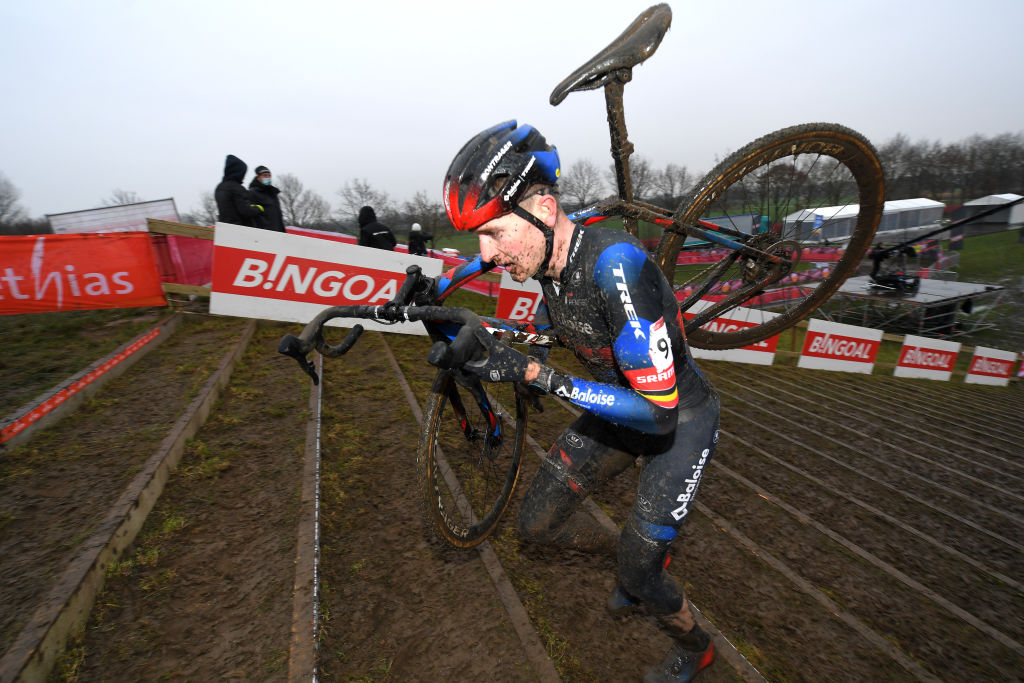Toon Aerts looking for a needle in a haystack as he tries to fight two-year doping ban
'I know that my second career will start on February 16, 2024 at the latest' says Belgian cyclocross rider

Toon Aerts and his lawyers have admitted they are looking for a needle in a haystack as they try to prove that a contaminated food supplement caused the Belgian’s positive anti-doping test for testosterone-boosting drug letrozole.
On Thursday the cyclocross rider revealed he is facing a two-year ban after the UCI offered a sentence before a final Anti-Doping Tribunal hearing. The UCI apparently recognises that Aerts did not voluntarily take letrozole, offering him a two-year ban instead of a full four-year suspension.
However, to reduce his ban even further or even avoid punishment, Aerts and his lawyers must prove the letrozole contamination.
“We found a contaminated supplement but in an opened container. To be legally binding, we also need to find a contaminated supplement in a closed container. And unfortunately, we have not succeeded to date. So officially, the source of the contamination has not been found,” Aerts’ manager Yannick Prevost explained.
“That’s like looking for a needle in a haystack. We feel that we’ve already analysed everything. It’s become almost impossible for an athlete to prove his innocence. We continue to hope for a reduced sentence but mentally we also have to prepare for the scenario where he’s not allowed to return to racing until February 16, 2024.”
Aerts tested positive for a letrozole metabolite last January, 10 days before the UCI Cyclo-cross World Championships in Arkansas, where Aerts finished in sixth place. He could be stripped of that result as well as his victory in Lille on February 6, a third place in the Gavere Superprestige.
Letrozole is considered a "specified substance" that does not require a mandatory provisional suspension. Aerts could have raced on in 2022 until a final verdict but opted to self-suspend from racing as he and the UCI worked through the case. He was placed on inactive status by his team Baloise Trek Lions.
Get The Leadout Newsletter
The latest race content, interviews, features, reviews and expert buying guides, direct to your inbox!
His positive test reportedly showed a concentration of 2.4 nanograms of letrozole per millilitre, with multiple anti-doping tests before and after confirmed as negative. There is no threshold for letrozole and so even a non-intentional positive caused by contamination leads to a ban.
All Aerts can do is try to prove contamination occurred, go through the disciplinary process and perhaps appeal to the Court of Arbitration for Sport.
“That there’s non-intentionality makes it so hard for me to accept the punishment,” Aerts said after reading out a statement and often breaking into tears.
“It was hell to tell this news to my parents, my girlfriend, my brother. Fortunately, they always believed in me and I got a lot of support from that.
“Cheats should be punished, but this feels like pure injustice. Something needs to be done about this. It is incomprehensible that this is the way of working in 2022.”
Aerts opted not to race when his positive test emerged so that any eventual ban can include the time needed to complete the disciplinary procedure. If he is banned for two years, Aerts can only return to racing on February 16, 2024, at the very end of the cyclocross season.
“I will continue to do everything I can to prove my innocence,” he said. “I am convinced that I will be able to race cyclocross again. I am currently facing a lot of uncertainties but I know that my second career will start on February 16, 2024 at the latest.”

Stephen is one of the most experienced member of the Cyclingnews team, having reported on professional cycling since 1994. He has been Head of News at Cyclingnews since 2022, before which he held the position of European editor since 2012 and previously worked for Reuters, Shift Active Media, and CyclingWeekly, among other publications.